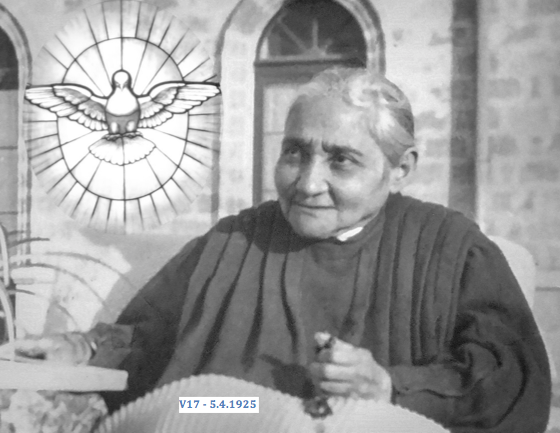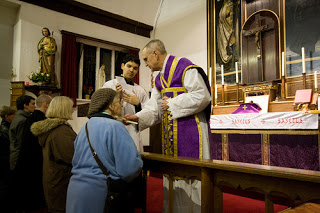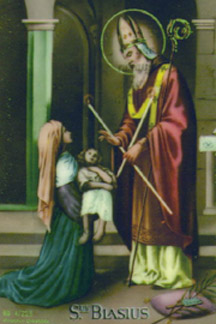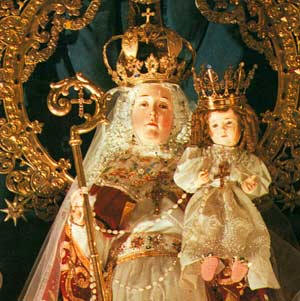 Our Lady of Good Success
Our Lady of Good Success
Quito, Ecuador
by Marian Theresa Horvat
Question: I have never heard of the prophecies of Our Lady of Good Success. Is this a new apparition? Has it been approved by the Church?
Answer: This is not a new apparition. It took place in the early 17th century. The revelations of Our Lady of Good Success and devotion to Her miraculous Statue have been approved by the Catholic Church since the beginning. It was the 9th Bishop of Quito, Salvador de Ribera, who attested in official documents to the miraculous completion of the Statue by St. Francis of Assisi and the three Archangels – St. Michael, St. Gabriel and St. Raphael – and presided over the anointing of the solemn consecration of the Statue in the Church of the Royal Convent of the Immaculate Conception on February 2, 1611. The devotion and apparitions were also authorized and promoted by the next Bishop of Quito, Pedro de Oviedo, who governed the Diocese from 1630 to 1646. Thus this devotion has enjoyed the support and approval of the Church since its very beginning.
Question: What do these revelations talk about?
Answer: Many of the prophecies of Our Lady of Good Success have already been fulfilled. She predicted the proclamation of the dogmas of the Immaculate Conception and Papal Infallibility, the consecration of that country to the Sacred Heart of Jesus, the martyrdom of a Catholic president of Ecuador by Masons (President Gabriel Garcia Moreno, assassinated in 1875), and many others things that have come to pass. (Msgr. Luis E. Cadena Y Almeida, postulator of the cause for beatification of the Servant of God, Mother Mariana de Jesus Torres, has written a book in Spanish on the many prophetic messages that have already taken place. Mrs. Horvath translated his book into English, under the title “Our Lady of Good Success: Prophecies for Our Times.”)
The most important prophecies of Our Lady of Good Success, however, spoke of the worldwide crisis in the Church and society that would begin in the 19th century and extend throughout the 20th century. During that time, She warned, there would be an almost total corruption of customs and Satan would rule almost completely by means of the Masonic sects. In the Catholic Church the Sacraments would be profaned and abused, and the light of Faith would be almost completely extinguished in souls. Truly religious souls would be reduced to a small number and many vocations would perish. Great impurity would reign and people would be without any care for spiritual matters.
Question: Who was Mother Mariana de Jesus Torres, the sister who received those revelations?
|
|
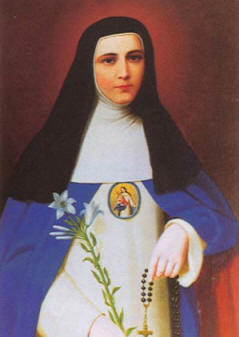
Mother Mariana de Jesus Torres
|
Answer: Mother Mariana de Jesus Torres (1563-1635) was a Spanish Conceptionist sister who traveled from her country to the New World to help to found the Royal Convent. The life of Mother Mariana was truly extraordinary. The number of visions and mystical favors granted to her as well as the miracles worked through her intercession are numerous. During her live, she was the superior of the Convent three times. During her first term as Abbess, she suffered persecutions from a group of rebellious nuns who wanted to relax the Rule. The rebellion grew, and the “inobservant” sisters put Mother Mariana and the other Spanish Founding Mothers in the Convent prison. Mother Mariana accepted all this and agreed to Our Lord’s condition to suffer the torments of Hell for five years in order to obtain the conversion of the leader of those rebellious sisters.
One of the most extraordinary facts of her life was a mystical-physical phenomenon: her several deaths and resurrections. Documented records from the Convent and Diocesan archives show that this truly holy religious died three times. Her first death was in 1582. Standing before the Judgment Seat, she was judged blameless and given a choice: to remain in celestial glory in Heaven or to return to earth to suffer as an expiatory victim for the sins of the 20th century. She chose the latter. Her second death was on Good Friday of 1588 after an apparition where she was shown the horrible abuses and heresies that would exist in the Church in our times. She was resurrected two days later on Easter Sunday morning. She finally died on January 16, 1635. Miracles worked through her intercession immediately followed.
The body of Mother Mariana de Jesus Torres, along with the incorrupt body of another Founding Mother, is preserved in the lower level of the cloistered Convent. In 1906 during the remodeling of the Convent, the sarcophagus in which she had been buried in 1635 was opened and her body was discovered, whole and incorrupt. Today it is preserved in the lower level of the cloistered Convent.
Question: Why haven’t I heard of these apparitions until recently?
Answer: It can seem strange that such an important devotion has been almost unknown outside of Ecuador for so long a time. But there is a supernatural explanation for this. The Mother of God told Mother Mariana various times that only after three centuries of mysterious silence would the message of the apparitions become known. Our Lady linked the spread of this devotion to a miraculous and extraordinary intervention she would make for the restoration of the Catholic Church when the crisis would be so great that almost all would seem lost. Our Lady also promised to give her good success to those who had recourse to her under this invocation during these difficult times. Thus, in a very special way, this prophecy is for our days.
Question: What is the origin of the invocation?
Answer: In 1607 Pope Paul V gave the name Virgin of Good Success to a statue miraculously found by two Spanish Brothers of the Order of Minims for the Service of the Sick. After the death of Brother Bernandine de Obregón, its founder, Gabriel de Fontaned was elected his successor. Accompanied by Guillermo de Rigosa, the new Superior set off for Rome to plead the case for official approval of their Order before the Roman Pontiff. As they were passing through the town of Traigueras (in Catalonia), they were caught in a storm so severe it made them fear for their lives.
In their fear, they prayed to Our Lady for shelter and succor. Seeing a soft light in the distant mountains, they left the path and climbed toward it. They found a cave carved like a polished stone and fragrant with flowers that enshrined a very beautiful statue of Holy Mary carrying Her Divine Son in Her left arm, a scepter in Her right, and a precious crown on Her head. The dress was simple but elegant. They fell to their knees to venerate the beautiful statue, and wondered how She came to be in this distant place.
The next day they traveled to the closest hamlets to make inquiries. None of the inhabitants, not even the eldest who knew the history of everyone and everything in the area, had every heard of the cave or the statue. Thus, the Brothers became the owners of the holy statue, offering Her their warmest thanks and choosing Her as their special patroness. With this amiable and powerful companion, they continued on their journey to Rome.
Arriving there, they told the Sovereign Pontiff what had happened, and Pope Paul V not only acknowledged the supernatural nature of that discovery, but upon confirming the new Order, he placed it under the protection of the same Virgin, whom he gave the name of the Virgin of Good Success.
The statue was placed in the Royal Hospital of Madrid, and soon became famous for the numerous favors granted by Heaven through it. In 1641 King Philip III ordered the construction of the splendid sanctuary in the Puerta del Sol in Madrid. With the passing of time as the devotion spread, the statue was copied and placed in various places, sometimes under a different invocation. Today there are a number of localities in Spain where this image is venerated: Orduña, La Puebla de Gordon, Tudela, Abla, among others.
The invocation was not long in making its way across the ocean to the New World. The Blessed Virgin deigned to favor the Convent of the Immaculate Conception in Quito in a very special way by means of this particular avocation. In an apparition to Mother Mariana de Jesus Torres, the Blessed Virgin appeared and asked that a statue be made of Her under the title of Good Success. She should be made just as she appeared to Her there, with the Child Jesus in her right arm, and the Abbess’ crozier and the keys of the Convent in her right hand. She should be placed above the Abbess chair in the upper choir because She desired to be Abbess of that Convent until the end of time. And so the Virgin of Good Success of Quito appears with the crosier in Her right hand, instead of the scepter that She carries in Madrid.
The Sisters of the Convent of the Immaculate Conception of Quito have always had a great love for their heavenly Abbess. The Statue of the Virgin of Good Success has been loved and venerated by the people of Quito for almost three centuries.
Question: How is the devotion spreading today?
Answer: Today the fame of this apparition is extending far beyond Quito. Our Lady of Good Success told Mother Mariana that She wanted to be known and loved throughout the world, and that the devotion would begin to spread only in the 20th century. This is, in fact, what has happened. She reserved this devotion for these times because the Church would be so embattled and suffering that only the divine power and love of the Blessed Virgin would sustain the faithful.
Question: What is meant by the words “good success”? In English, it can give the impression that one is asking for material success.
Answer: That is not the original Spanish connotation. The invocation of “good success” refers to the happy development of the gestation of Christ from the Conception to Birth. The invocation of “good success” was understood by the faithful in its first meaning as a simple plea for safe childbirth. This easily extended to the invocation of Mary’s meditation and intercession in times of personal need (sickness, travel, marriage).
The expression later broadened further to be understood in the sense of good success in various undertakings. For example, its popularity in the seafaring regions of Catalonia, Isle of Gomera, and Granada indicates a connection with maritime travel. Sailors would ask Mary for a safe return to port. The extended meaning can also be that of a holy death. In short, sucesso, meaning success or luck, refers to well-being and safety where strictly human means find no issue.
Question: When can the public see the miraculous Statue of Our Lady of Good Success?
Answer: The miraculous Statue of Our Lady of Good Success is taken from the cloistered upper choir three times a year and placed above the main altar of the Convent Church, so that it can be venerated by the people of Quito. It can be seen by the public at the following times:
1. During a nine-day novena in commemoration of the Feast Day of the Purification of Our Lady (February 2) – from around January 24 to February 4;
2. During the month of May;
3. During the month of October.
Mother Mariana: victim for the 20th century
Mariana Francisca was born in Spain the province of Viscaya in 1563, the first-born child of Diego Cadiz and Maria Berriochoa Alvarez. On the day of her First Communion, at age 9, Our Lady appeared to her and told her she was destined to be a religious of Her Immaculate Conception in the New World. In 1577, when Marianna was only 13 years old, she left Spain in the company of her aunt, Mother Maria de Jesus Taboada, and four other sisters, to found a branch of the Order of the Immaculate Conception in San Francisco de Quito, Ecuador.
In 1582, when Mother Mariana was praying before the Blessed Sacrament, for the first time she was given to see the heresy, blasphemy and impurity that would inundate the world as punishment in the 20th century. Our Lady asked her: “My daughter, will you sacrifice yourself for the people of this time?” Mother Mariana replied, “I am willing.” From the violence of the shock of previewing the horrors of our day, Mother Mariana fell dead.
Historic and documented evidence record that this holy religious truly died in 1582 and resurrected. Before the divine tribunal, she was given the choice to remain in heaven or return to suffer in the world. Following the example of Our Lady, who left the glories of heaven to protect her children during those difficult first years of the fledgling Church, Mother Mariana chose to return to life to expiate for the great sins of our times. (A second death and resurrection happened on Easter Sunday of 1588.)
The Existence of Hell
The First Secret of Fatima breaks the myth, the lie of 20th century, that hell does not exist. On July 13, 1917, Our Lady told three children, ages 10, 8,7, to “pray, pray very much because many souls go to Hell. Then She opened Her hands and showed the three children a hole in the ground, a place. That hole, said Lucy, was like a sea of fire in which we saw the souls of human forms, men and women, burning, shouting, and crying in despair.” Mary said to the children: “You have seen Hell where sinners go when they do not repent.” A Roman Catholic dogma: The existence of Hell.
During her life, Mother Mariana begged Our Lord to save the soul of an insubordinate sister in the convent. He agreed that this rebellious sister would be saved, although she would be required to remain in purgatory until the end of the world. In recompense, Mother Mariana had to suffer five years on earth the pains of hell. For five years, she suffered all the tortures of the senses reserved for souls in that terrible place and the most intense suffering of the sense of the loss of God.
It seems very clear that Our Lady wanted 20th century man to realize that hell exists: it is a place, and it is not empty.
The breakdown of morals and customs
During Jacinta’s stay at the orphanage of Our Lady of Miracles in Lisbon in 1920, Our Lady told her, “The sins that lead more souls to hell are the sins of the flesh.” There were other prophecies She revealed to the little girl: “Styles will come that will offend Our Lord very much. Persons who serve God should not follow the styles. The Church does not have styles. Our Lord is always the same.” She said that the sins of impurity would be so great there would be almost no virgin souls. She said that many marriages are not good, that they do not please Our Lord and are not of God. Finally, Jacinta repeated continually to Lucia and Mother Godinho:“Pray much for priests and religious. Priests should be pure, very pure!”
Three centuries before, in Quito, Ecuador, on Jan. 20, 1610, Our Lady appeared carrying a crozier in Her right hand and her Divine Son in her left arm so that “all will know that I am merciful and understanding. Let them come to me, for I will lead them to Him.” She told Mother Mariana that in the twentieth century “the passions will erupt and there will be a total corruption of customs, for Satan will reign almost completely by means of the Masonic sects. They will focus particularly on the children in order to achieve this general corruption. Woe to the children of these times.” Obviously she is speaking of the secular humanist revolution about which so much has been written that has completely invaded the secular as well as religious institutions of our times.
Our Lady continued, describing the abuses that would attack each of the Sacraments: “Woe to the children of these times because it will be difficult to receive the Sacrament of Baptism and also that of Confirmation.” She warned that the devil would assiduously try to destroy the sacrament of Confession and Holy Communion. She lamented the many sacrileges and abuses of the Blessed Sacrament that would occur. The Sacrament of Extreme Unction would be little esteemed and many people would die without receiving it, thus denied assistance they would need for that “great leap from time to Eternity.”
The Sacred Sacrament of Holy Orders would be ridiculed, oppressed and despised. The demon would labor unceasingly to corrupt the clergy and would succeed with many of them. And these “depraved priests, who will scandalize the Christian people, will incite the hatred of the bad Christians and the enemies of the Roman, Catholic and Apostolic Church to fall upon all priests. This apparent triumph of Satan will bring enormous sufferings upon the good pastors of the Church.”
About the Sacrament of Matrimony, which symbolizes the union of Christ with His Church, she said this: “Masonry, which will then be in power, will enact iniquitous laws with the objective of doing away with this Sacrament, making it easy for everyone to live in sin. The Christian spirit will rapidly decay, extinguishing the precious light of Faith until it reaches the point that there will be an almost total and general corruption of customs. In these unhappy times, there will be unbridled luxury that would conquer innumerable frivolous souls who will be lost. Innocence will almost no longer be found in children, nor modesty in women. In this supreme moment of need of the Church, those who should speak will fall silent.”
Our Lady told Mother Mariana, the religious Conceptionist who received the revelations, that the souls who would remain faithful in those difficult times would need great strength of will, constancy, valor and confidence in God. Moments would come when everything would seem to be lost and paralyzed, but that would be the moment, she promised, of the “happy beginning of the complete restoration.” “My hour will arrive” she foretold, “when I, in an amazing manner, will overthrow proud Satan, crushing him under my feet, chaining him in the infernal abyss, leaving the Church and the land free of this cruel tyranny.”
Thus, while the message of Our Lady of Good Success is quite sad and serious, it is also one of great hope. It is the promise echoed by Our Lady at Fatima in 1917: “In the end, My Immaculate Heart will triumph.”
